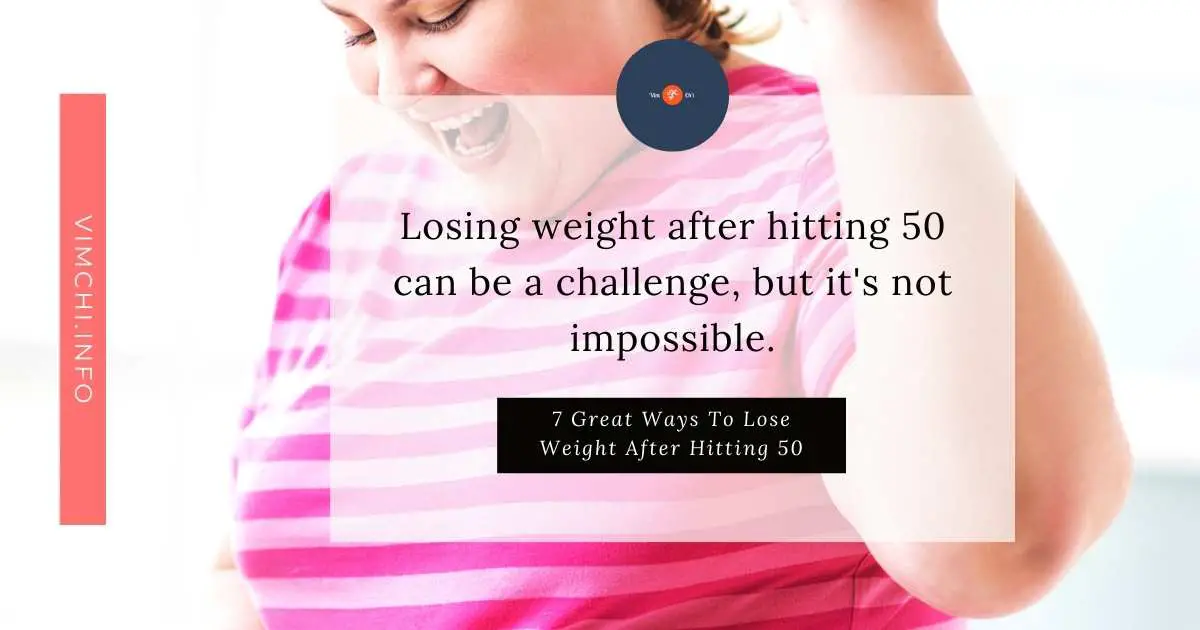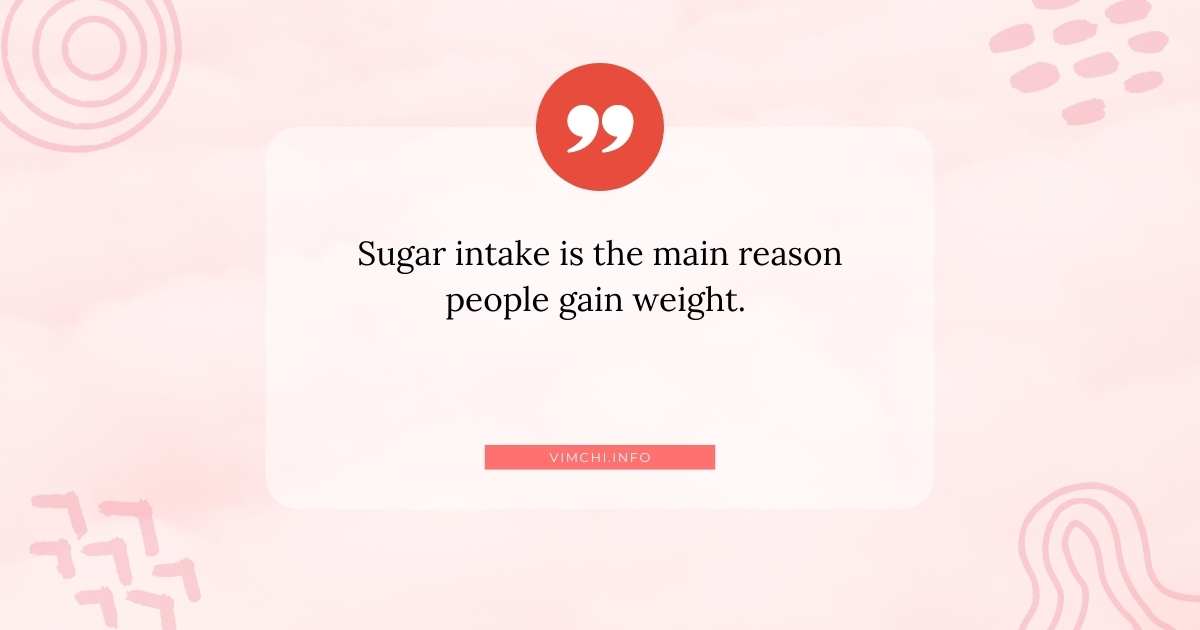
30-Second Summary of the Ways to Lose Weight After 50
- If you are like me, you might find yourself gaining a few extra pounds every year after turning 50.
- There are many factors to blame, such as the increased stress of balancing career and family.
- But more than that, there is an age-related change in the body that decreases metabolism and increases appetite. These two changes make it harder to control weight gain.
- It might take more time for 50+ adults to lose weight than it does for most millennials, but it’s not impossible. In this article, you’ll learn seven easy ways to lose weight after 50.
Introduction to Ways to Lose Weight After 50
After 50, your metabolism can slow down to the point where it’s difficult to lose weight. But you don’t have to resign yourself to being a little chunky forever! We’ll go over seven great ways to lose weight after hitting 50. The human body is made to be efficient, and it is possible to burn fat and more calories when you are physically active.
For example, walking at a brisk pace for one hour can burn over 200 extra calories per day. It will not only help you lose weight, but it will keep your muscles in shape as well. After 50, you may find that your best strategy for losing weight is to follow a healthy diet plan. That keeps your metabolism from slowing down and also helps prevent overeating.
If you’ve hit 50 and find yourself struggling to lose weight when you’re not alone. Many people have a hard time shedding pounds as they age, but it doesn’t have to be this way. Read on for some great tips that can help you lose weight after hitting 50.
Read: How to optimize protein production?
Top 7 Ways to Lose Weight After Hitting 50
1. Stick with A Low-Carbohydrate Diet And Focus On Fiber
Many people believe that fats should be cut out completely if they want to lose fat tissue. That is a common misconception. Carbohydrates can also become a reserve as fat tissue if consumed excessively. An extensive meta-analysis done in 2012 shows that low-carb diets work better for weight loss than those with low fat.
Consuming sufficient soluble fiber is another crucial aspect of any weight loss program. These indigestible carbs slow down food passage to regulate blood sugar, normalize bowel movements, and lower cholesterol. Fiber makes you feel fuller, and you will eat less. Fiber-rich foods include whole grains, beans, nuts, brown rice, and a variety of fruits and vegetables.
When losing weight, it is critical to eat a lot of protein. Protein helps you lose weight, reduces hunger pangs, improves metabolism, and makes you feel fuller longer. Protein sources of great value include eggs, fish, and meats, as well as dairy products, whey proteins, and beans.
2. Stay Active And Lift Weights
Once you have established a healthy and balanced diet, it is time to take up sports. It doesn’t matter if you’re running, swimming, cycling, or going to the gym. Start practicing your favorite sport at least three times per week. It is crucial to exercise regularly if you want to lose weight.
Cardio is a great way to lose calories and reduce belly fat. After you have mastered the basics and feel you are more comfortable with regular exercise, you can begin lifting weights. For building and maintaining muscle mass, resistance training is crucial. You will lose muscle tissue when you lose weight. Lifting weights can help you keep more muscle. It’s best to seek professional guidance and advice from a certified personal coach before you start any new sport. Check the health web magazine for more information on the importance of sports.
Read: Weight loss in one month
3. Do Not Use Sweetened Products

Sugar intake is the main reason people gain weight. It is also linked to type 2 diabetes, heart disease, and even cancer. Hidden sugars can be found in many foods, even if you try to avoid sugary foods like cakes and candy. It is crucial to understand labels and calculate calories. You might be surprised at how high the sugar content of some foods and beverages, such as yogurt, fruit juice, sports drink, granolas, and flavored coffee is. These foods should be avoided at all costs to ensure that you don’t slow down or cause you to lose progress. Swap them for fruits for weight loss, such as apples and citruses.
4. Lower Stress Levels
Chronic stress triggers adrenal glands, causing spikes in adrenaline and cortisol. Studies have shown that cortisol stimulates appetite and can directly lead to the bodybuilding of dangerous visceral fat. It turns out that those with more visceral fat than normal tend to produce more cortisol after chronic stress. Find your stress sources and reduce their impact on your body. That will help you to lower stress levels and indirectly increase belly fat.
5. Reduce Alcohol
Your progress can be slowed down by alcohol, which can also be very harmful to your overall health. It’s high in calories and might lead to obesity. It’s okay to have one drink per day, but it is best to not give up.
Studies have shown that alcohol consumption may cause weight gain, liver disease, depression, anxiety, brain damage, and heart problems. Limit your alcohol intake.
Read: Do weight loss clinics work?
6. Avoid Sitting For Too Long
Sedentary living is common in today’s world. Many of us are prone to sitting for long periods at work, and then we fall asleep in front of the television when we return home. These habits will help us burn fewer calories and slow down our metabolism. You should continue to exercise even if you aren’t working out regularly. Take short walks and stand up more.
7. Never Skip Meals
For many reasons, skipping meals and breakfast may have a devastating effect on your weight loss efforts. Skipping meals or starving might cause you to eat more calories and eat more than you should. It can make you tired and less motivated to do your daily activities. That could lead to a decrease in overall calories.
The Bottom Line
Losing weight after hitting 50 can be a challenge, but it’s not impossible. With the right mindset and approach, you may achieve your weight loss goals and improve your overall health.
Try out some of the ways to lose weight after 50 mentioned in this article, start on a body reset diet, and see which ones work best for you. Remember to focus on making small changes that you can sustain over the long term, rather than crash dieting or going overboard with exercise. And most importantly, don’t give up – even if you have setbacks along the way.
To know more about how to lose weight, find out here how to choose the right weight loss program.
This is a guest post by Stuart Gomez.
Speak Now ... Or Forever Hold Your Peace